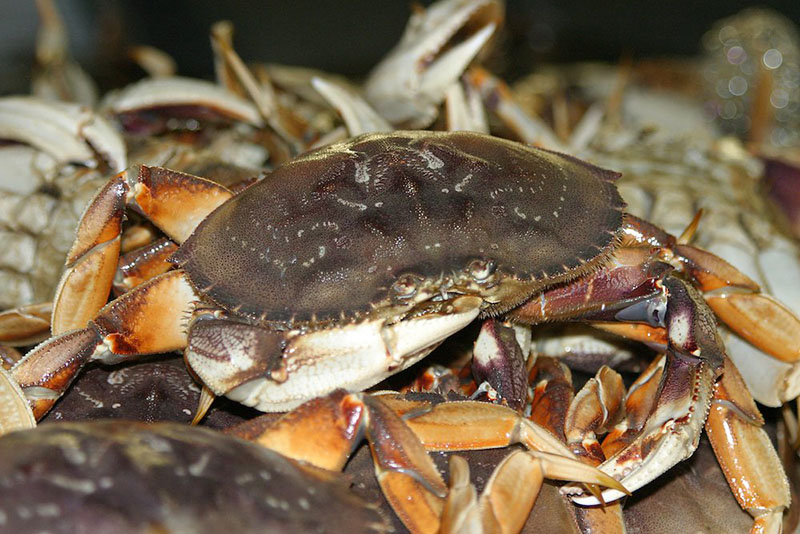California state officials are ordering an early end to the southern Dungeness crab season May 15 to protect migrating whales, a move fishing advocates say is out of proportion to the actual risk.
The decision comes as the fishery is winding down, with the California fleet gearing up for a promising salmon season that opens May 1. But it cuts off a sector that is providing jobs and seafood in coastal communities hit hard by coronavirus restrictions and their economic impact, said Ben Platt, president of the California Coast Crab Association.
“They say that there’s ‘significant risk.’ But the whale working group determined there was low risk, as they have in all of the recommendations this season,” said Platt, referring to a stakeholder advisory group established in 2015 to assess seasonal risks of gear entanglement.
In its notice the agency said April 7 aerial surveys “showed humpback whale presence off the California coast in the Gulf of the Farallones, which overlaps with the fishing grounds. Additional observation data from Monterey Bay and the Farallon Islands indicate an increase in the number of Humpback whales, a signal indicating the start of the spring migration to California waters to forage.
“Fishing effort, while reduced, is still occurring and overlaps with humpback whale foraging areas.”
One of those reports “was based on one person in a boat from Monterey Bay” where four crab boats have been fishing 400 pots close to shore, said Platt. From San Francisco south to the Mexican border there are now less than 1,800 traps being fished, he added.
“The statistical chance of one of those whales getting entangled is almost impossible,” said Platt.
In 2019 the Dungeness season closed April 15. State officials say the timing of the new closing date was determined partly on advice from the Department of Fish and Wildlife’s Dungeness Crab Fishing Gear Working Group.
At the group’s April 9 meeting, fishermen said “they would need 30 days to remove their gear in a timely and safe manner, taking weather and physical distancing from covid-19 into consideration,” said Jordan Traverso, a spokesman for the agency.
The next working group meeting was April 27. If the agency had waited until then to start the closing process and 30-day window for retrieving gear that fishermen requested, “we would have been well into, in fact nearly all the way through the March through June timeframe that we have seen more frequent occurrences of entanglement in the past,” said Traverso.
In the state there are currently 96 boats that employ 350 families in coastal towns “where most people are unemployed now” because of public health measures, said Platt. That spring fishery is about 20 percent of the crab fleet, which at the height of the season counts 550 active permits and direct employment for 2,000 families from the boats alone, not counting thousands more in distribution and retail and restaurant trades, he said.
“In Crescent City where I am, most of the economy if fishing or tourism,” he added.
Some critics are dismissive of the crabbers’ concerns, thinking that truncating the season before July is not that big of a deal. But Platt says the last weeks are a critical time for many fishermen – and they are worried that any early closure will pave the way for more in the future.
The order came just as the market for live crab to China began to slowly open up, raising prices around $1 a pound. Plat said he sold 5,000 pounds for export, for the first time in months since the Asian markets dried up in late January.
“We need a full season or we go out of business,” he added. “We’re trying to hold them (state officials) to the science, what’s actually going on out on the water.”
The California Coast Crab Association has grown out of reaction to the state’s settlement terms with the Center for Biological Diversity and has been working with the Department of Fish and Wildlife on a risk management plan, said Platt.
“We’re trying to get the department to change course on this,” he said. “It’s the first time we’ve come out criticizing the department. We don’t like doing that. We want them to see us as allies.”







